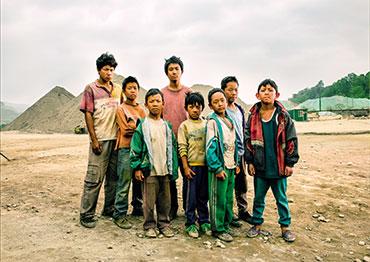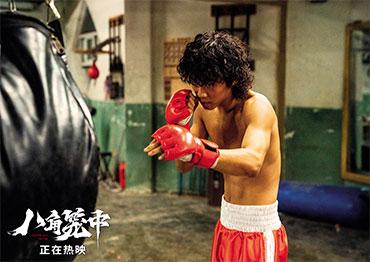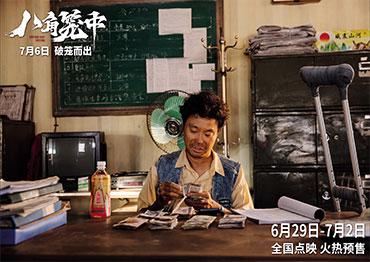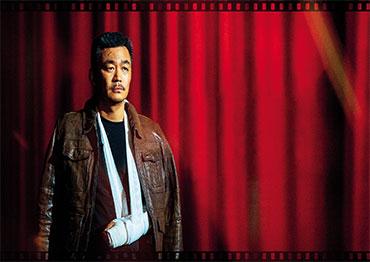The film is based on the true story of En Bo, who mentored more than 400 orphans and teens at his Enbo Boxing Club since 2001. The children were mostly from Liangshan, an impoverished mountainous area in Southwest China’s Sichuan Province. Boxing and En Bo’s charity were transformative for them – many grew up to fight professionally, join the military or law enforcement, or become civil servants.
But in 2017, video of two 12-year-old orphans from his club fighting in a commercial boxing match went viral. Media descended on En Bo’s club in Sichuan’s capital of Chengdu amid public allegations of him profiting from underage orphans. En Bo soon became a target of cyber violence. Local authorities eventually removed 25 children in his care, returning them home to Liangshan.
Wang closely followed the story, a complex and controversial twist on the a classic underdog tale. He visited En Bo and acquired the film rights.
Through En Bo’s experiences Wang saw his own – a weary middle-aged man who had been wronged, falsely accused and bullied online. Wang likened his state over the last six years as being “on the brink of death.”
In 2016, Wang was at the center of a scandal that unfolded on social media. His wife had a long-term affair with his agent who had helped transfer their communal property solely into her name. Wang, then 35, and his family were subjects of endless cyber bullying, gossip, public mockery and pity on the Chinese internet.
Then came his directorial debut, action-comedy Buddies in India. Though not a commercial failure – it grossed 750 million yuan (US$103m) – the film was critically panned, scoring 3.7/10 on China’s leading media review site Douban.
Wang was even awarded “Most Disappointing Director” at the 9th Golden Broom Awards, China’s equivalent of the Razzies, in 2018. In a brave display, Wang showed up in Beijing to receive the award – the first A-lister to do so in the event’s 10 years.
During his acceptance speech, Wang said: “Audiences came to see the film because they had some expectations of me, but I let them down. I was extremely upset and wouldn’t let it go,” Wang said with a frown. He described this failure as “spiritual torture,” and sought to repay audiences with a good film.
He saw Never Say Never as his chance, and spent the next six years working on the film. When investors showed little interest in Wang playing a serious role, let alone directing again, Wang took out loans and borrowed from friends. “I’ve put all my money into it,” he said.
“I’ve been this way since I was a kid. I’ve always struggled to prove myself, whether during my long years at Shaolin Temple or through my tough times as an extra. I’ll never look back as long as I’m breathing. I keep telling myself to look ahead and move on,” Wang said.
His persistent effort paid off. The film, whose Chinese title translates to Inside the Octagon, scored a 7.5/10 on Douban.
“The octagon is not only a fighting ring for boxers, but more as a metaphor for the harsh fate that corners children from remote villages. Fortunately, the protagonist brings these children out of the mountains, lets them embrace a wider world and changes their fates as ‘cornered animals,’” Douban user “Xu Ruofeng” commented.
“It’s clear that Wang Baoqiang is a humble and mild-mannered person who never forgets where he came from. The film shows his empathy and expectations of grassroots in society,” user “Xiao Ye” posted.
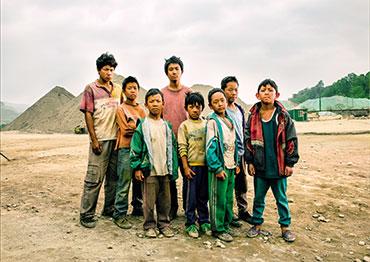
 Old Version
Old Version
